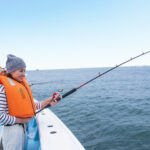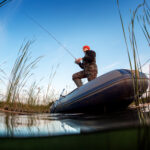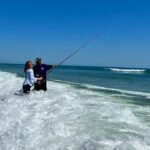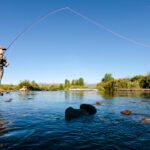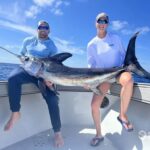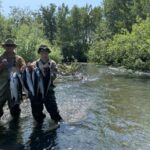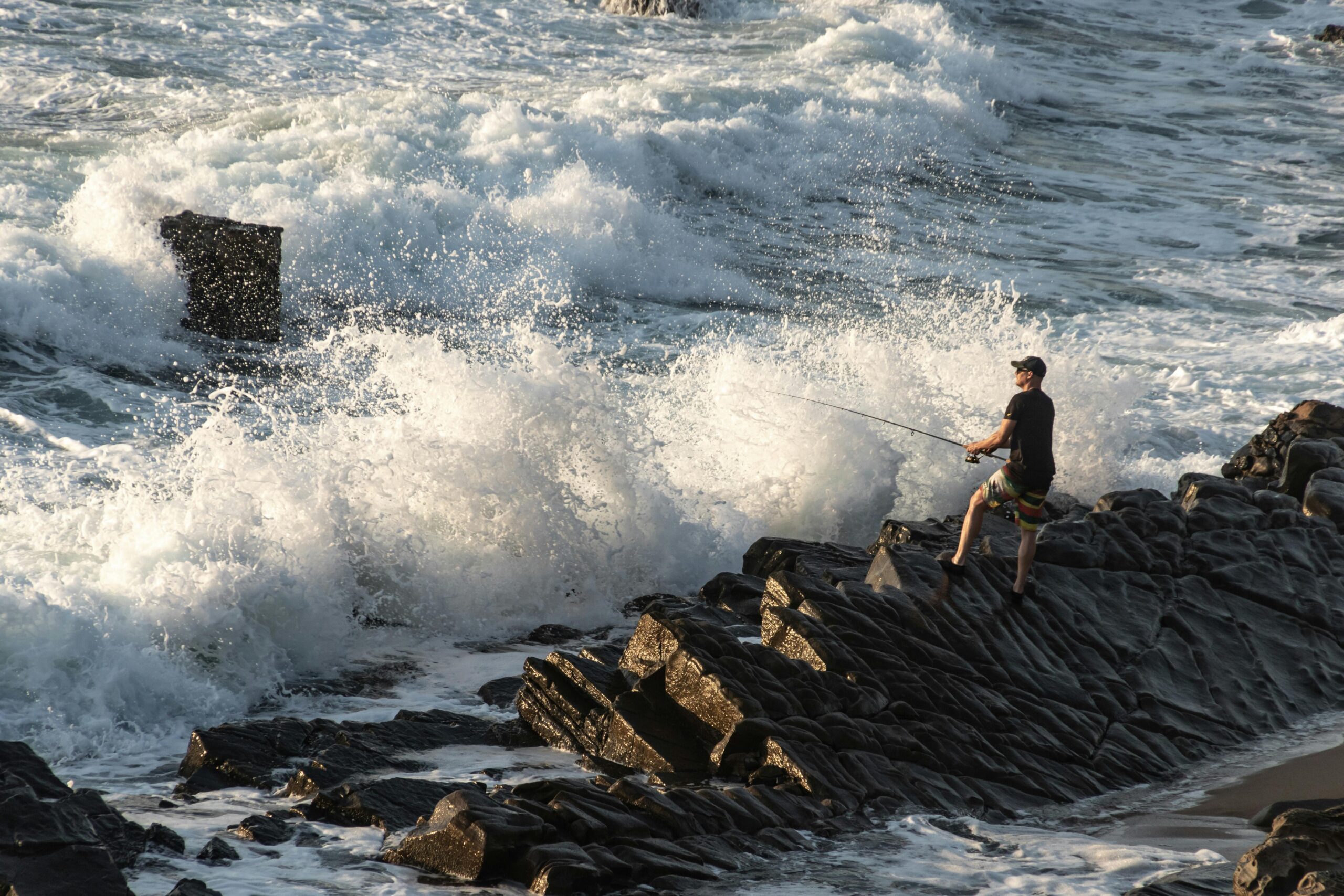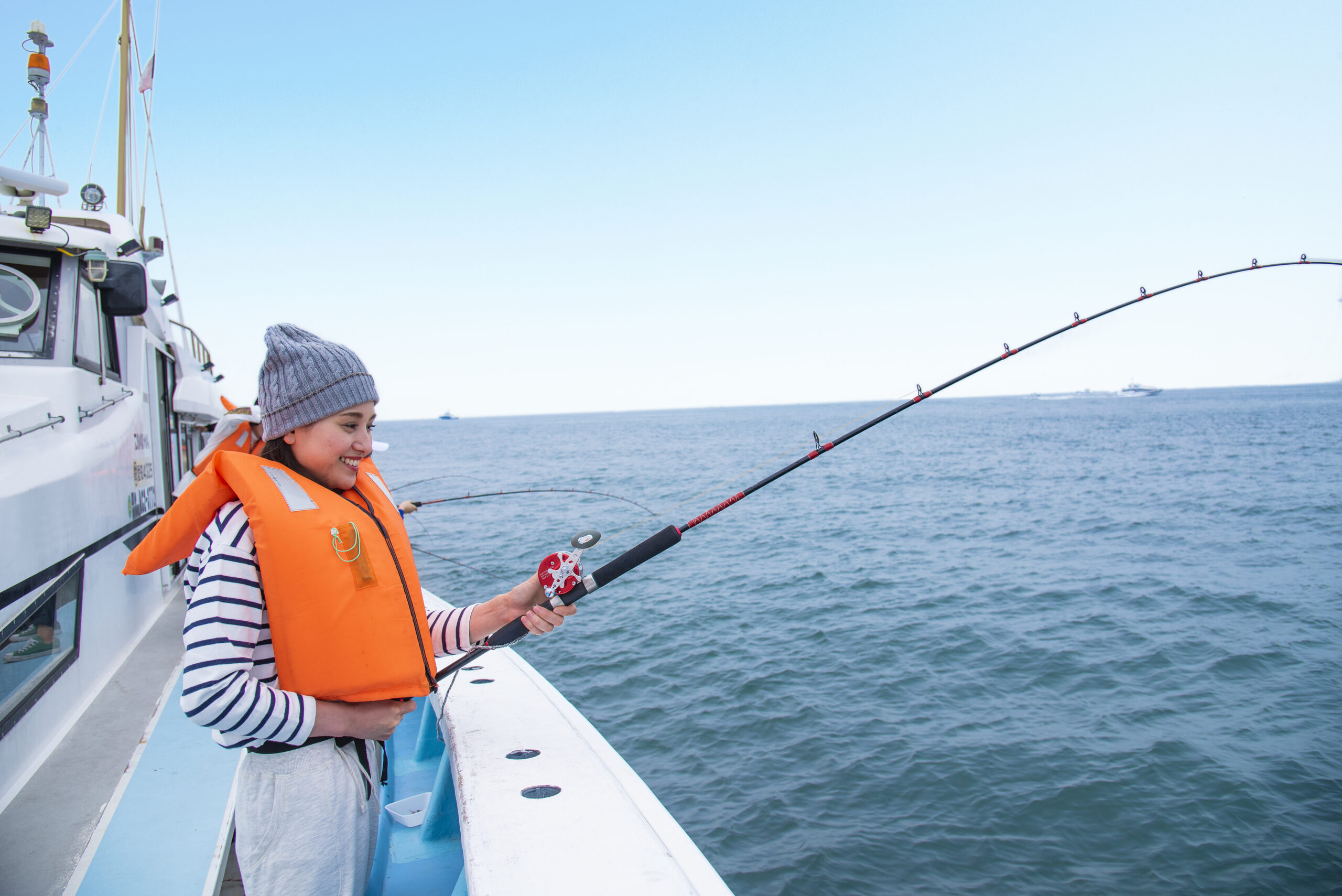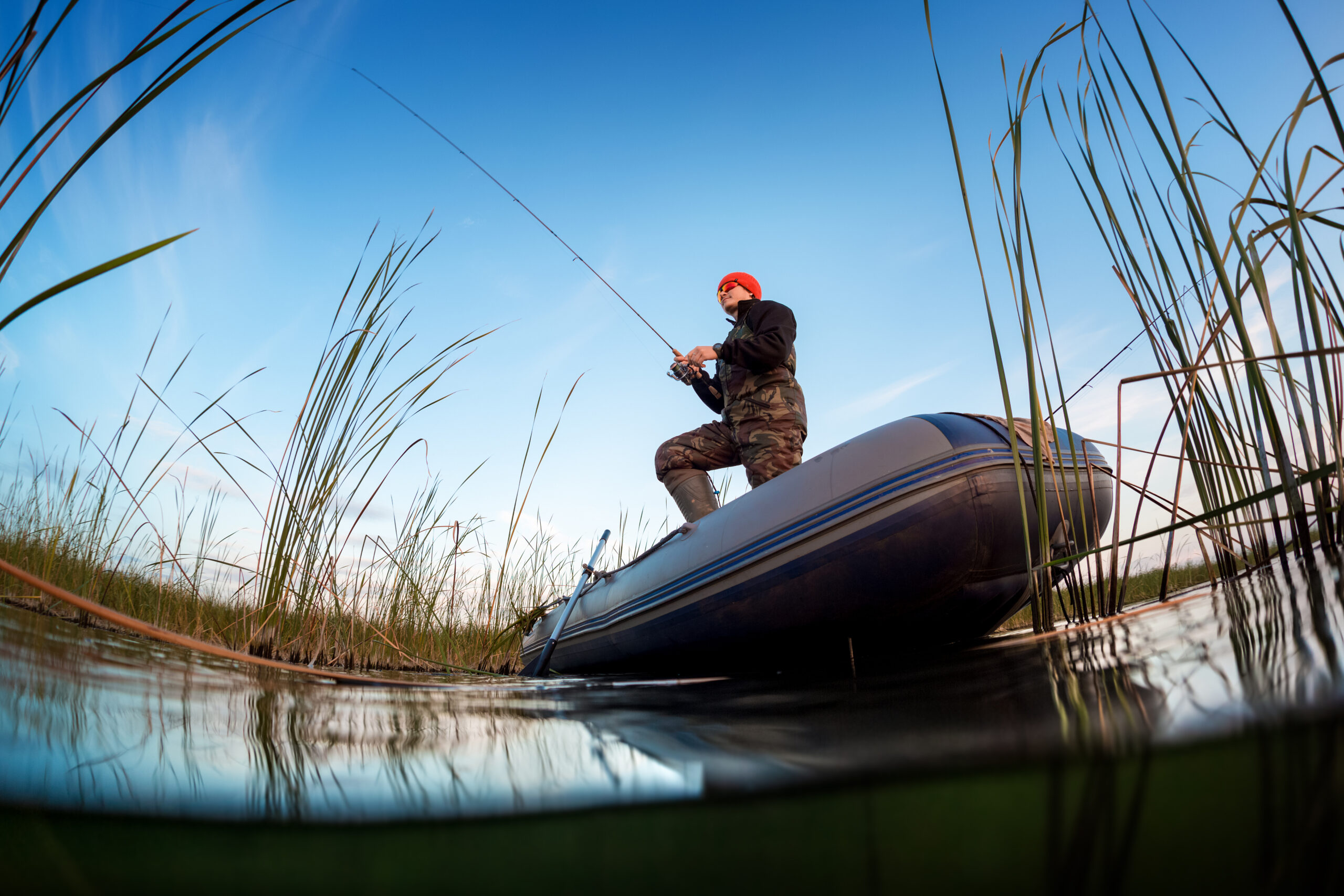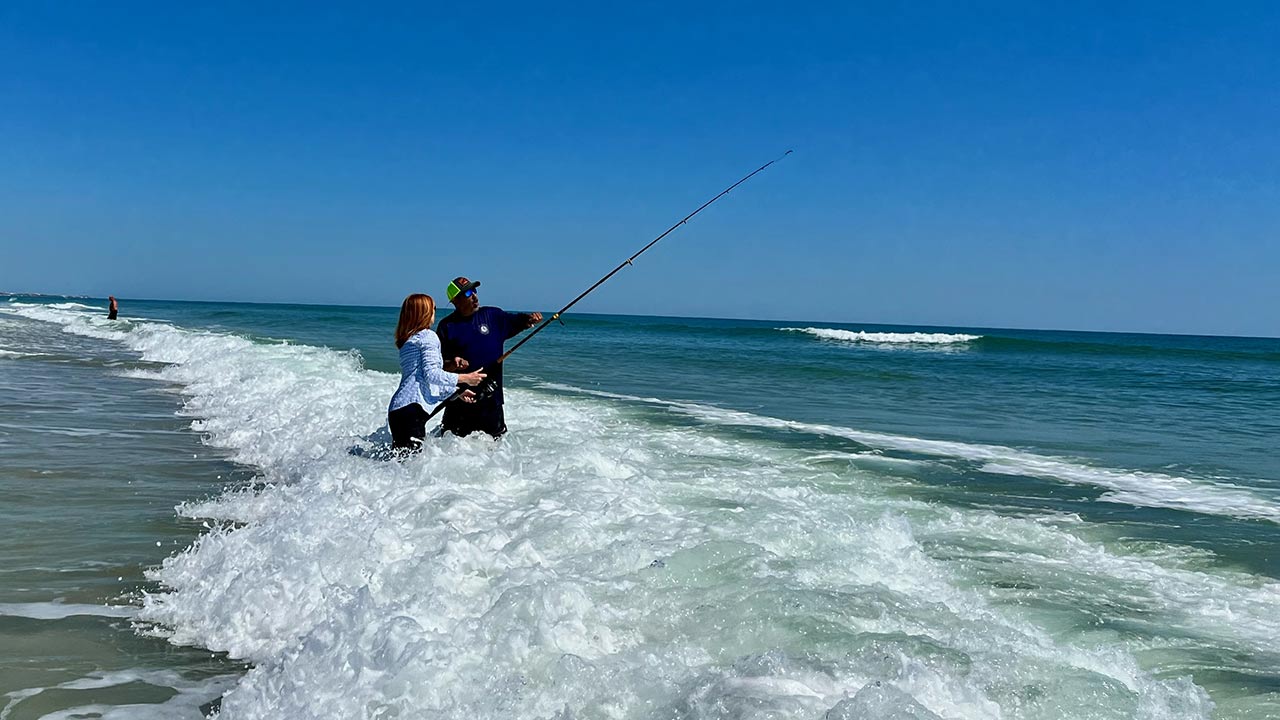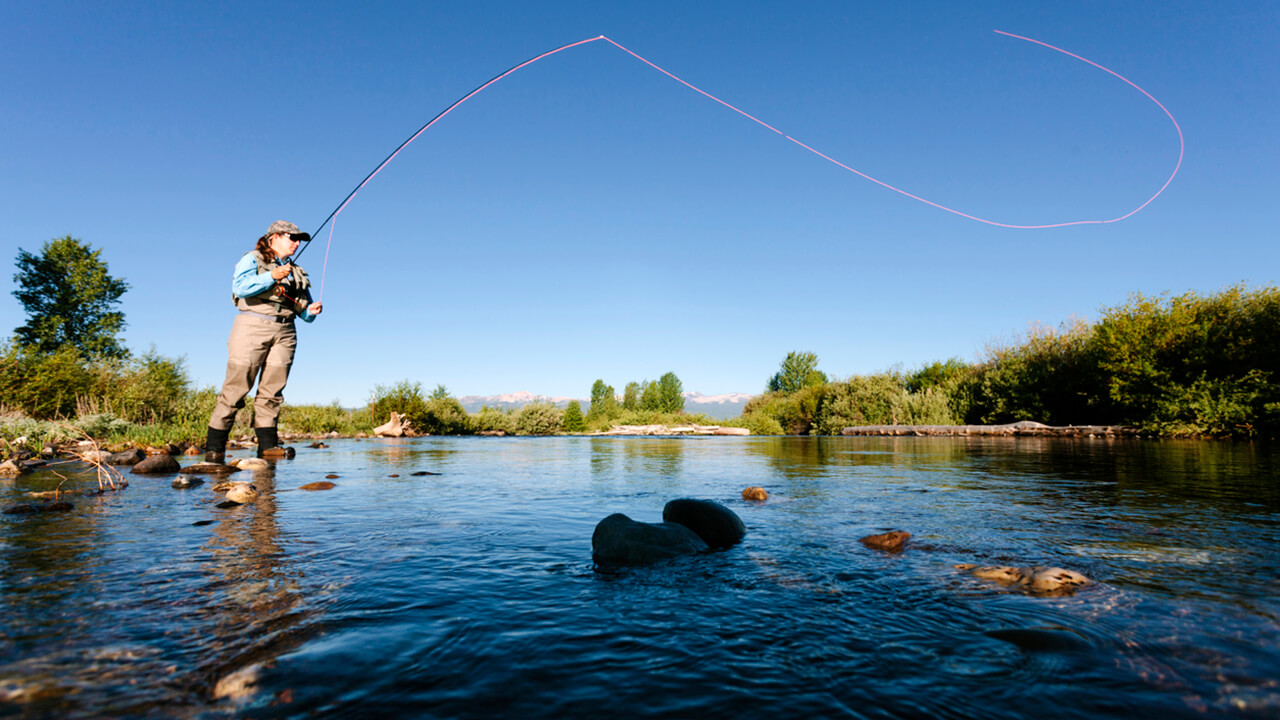Saltwater fishing is more than just a sport—it’s an immersive experience that connects you to the rhythms of the ocean. From the thrill of reeling in a massive fish to the peaceful solitude of the open water, saltwater fishing offers a unique way to enjoy nature and challenge yourself. Whether you’re a seasoned angler or a first-timer, there are certain guidelines and best practices you should keep in mind to ensure a safe, enjoyable, and successful fishing trip. Here’s a comprehensive guide on the essential things to consider when heading out for a saltwater fishing adventure.
1. Choose the Right Gear: The Foundation of a Successful Trip
Before setting out on the water, ensuring that you have the right gear is paramount. Saltwater fishing requires specialized equipment due to the unique challenges of fishing in the ocean. The right gear not only increases your chances of success but also enhances the overall experience.
Fishing Rod and Reel:
- Rod: Saltwater rods are typically longer, more durable, and more flexible than freshwater rods. For shore fishing or pier fishing, a medium to heavy-action rod (7 to 9 feet) works best. For boat fishing, you’ll want a rod that can handle larger fish and deeper water.
- Reel: Spinning reels and conventional reels are the most common types used for saltwater fishing. Make sure your reel is corrosion-resistant, as saltwater can quickly damage unprotected equipment.
- Line: Use a high-quality, durable monofilament or braided line. Braided lines are especially effective for deep-water fishing because of their strength and sensitivity.
Hooks and Lures:
- Hooks: Use hooks that are designed specifically for saltwater fishing. These hooks should be corrosion-resistant and come in various sizes depending on the species you’re targeting.
- Lures and Bait: Depending on the type of fish you’re after, you’ll need the right bait or lures. Live bait like shrimp, squid, or small fish works well for many species, while artificial lures such as jigs, spoons, or soft plastics can be used to mimic the movement of prey. Always ensure your bait matches the local fish population and their feeding habits.
Tackle Box and Accessories:
- Tackle Box: Organize your hooks, lures, weights, and tools in a sturdy tackle box. This will keep your gear accessible and safe from damage.
- Other Essentials: Bring a pair of pliers for hook removal, a fish ruler to measure your catch, and a cooler to store your fish if you plan to keep them.
2. Understand the Best Fishing Spots: Know Where to Cast Your Line
The ocean is vast, and knowing where to fish is key to success. Saltwater fish tend to gather in specific areas depending on factors like water temperature, food availability, and tides. Here are a few spots that are known to attract fish:
Nearshore Areas:
- These areas, close to the shore, often host a wide variety of species like snook, redfish, and bluefish. Sandbars, rocky outcroppings, and reefs are prime spots to fish, as they provide shelter and food for many species.
Offshore Fishing:
- If you’re looking for larger game fish like tuna, marlin, or mahi-mahi, consider heading offshore. Offshore fishing typically requires a boat and can take you several miles from the coastline to deeper waters where big fish thrive. Deep-water reefs, underwater mountains, and shipwrecks are prime locations for big-game fishing.
Estuaries and Mangroves:
- Saltwater estuaries and mangrove forests are rich in nutrients and home to a variety of species. These areas are great for fishing during the early morning or late afternoon when fish are more actively feeding.
Tidal Influence:
- Tides play a huge role in saltwater fishing. Fish tend to feed more actively during the incoming (flood) tide and the outgoing (ebb) tide. Understanding the local tide schedule can help you plan your fishing trip for maximum success.
3. Timing is Everything: The Importance of Seasons and Tides
Fishing success is often dependent on timing. Saltwater fish are influenced by a variety of factors, including seasonality, time of day, and tide conditions. Here’s what you need to know to make the most of your fishing trip.
Seasonal Considerations:
- Many species of fish migrate based on water temperature and food availability. For instance, species like striped bass and redfish tend to be more active in warmer months, while other species like cod and flounder are best caught during cooler periods. Research the best fishing seasons for the species you’re targeting in your region.
Time of Day:
- Fish are more likely to bite during certain times of the day. Early mornings and late evenings, when the sun is low in the sky, are typically the best times to fish. During these hours, fish are closer to the surface, making them easier to target. Avoid fishing during the middle of the day when fish tend to retreat to deeper waters to escape the heat.
Tides:
- As mentioned earlier, the tide plays a significant role in saltwater fishing. Fish are more likely to be active and feeding when the tide is rising or falling. The change in water levels also brings in new nutrients, attracting fish to specific areas.
4. Respect the Environment: Protecting Marine Life
As anglers, it’s important to remember that we are guests in the ocean. Responsible fishing practices help preserve marine ecosystems and ensure that future generations can enjoy the same thrill of the catch.
Catch and Release:
- If you’re not planning to keep your catch, practice proper catch-and-release techniques to minimize harm to the fish. Use barbless hooks, handle the fish gently, and release it back into the water as quickly as possible. Always wet your hands before handling fish to protect their delicate skin.
Limit Your Catch:
- Respect local fishing regulations regarding bag limits and size limits. These rules are in place to protect fish populations and ensure sustainable fishing practices. If you’re unsure of the regulations in your area, check with local authorities or fishing guides.
Clean Up After Yourself:
- Always clean up after yourself and dispose of fishing waste, such as lines, hooks, and bait, properly. These items can be hazardous to marine life if left in the water or on the shore.
5. Safety First: Be Prepared for the Ocean
While saltwater fishing is an enjoyable and rewarding activity, it’s essential to prioritize safety. The ocean can be unpredictable, and conditions can change quickly.
Wear Sun Protection:
- The sun’s reflection off the water can increase your exposure to harmful UV rays, so always wear sunscreen with a high SPF. Don’t forget to wear a hat, sunglasses, and protective clothing to shield yourself from the sun.
Stay Hydrated:
- Spending hours on the water can be physically taxing. Bring plenty of water to stay hydrated, and avoid alcohol until you’re safely back on shore.
Check the Weather:
- Always check the weather forecast before heading out. Sudden storms can pop up on the water, especially in coastal areas. Make sure you’re aware of wind conditions, temperature, and potential storm activity.
Wear a Life Jacket:
- Even if you’re an experienced angler, wearing a life jacket is a wise decision, especially when fishing from a boat or kayak. Safety should always come first, and a life jacket is your best line of defense in case of an emergency.
6. Patience and Persistence: The Heart of Saltwater Fishing
Finally, saltwater fishing requires patience and persistence. The ocean can be unpredictable, and fish aren’t always going to bite on the first cast. It’s important to stay calm, keep trying different techniques, and remain adaptable to changing conditions. Remember that every fishing trip—whether successful or not—offers valuable lessons and experiences that will make you a better angler over time.
Conclusion: Enjoy the Journey, Not Just the Catch
Saltwater fishing is a journey, not just a destination. The anticipation, the tranquility, and the thrill of the chase are all part of the experience. Whether you’re fishing off a quiet pier, a bustling coastal town, or in the deep blue waters of the open ocean, the time you spend on the water is precious. By following these essential tips, respecting the environment, and embracing the joy of fishing, you’ll create unforgettable memories with every cast. So, grab your gear, check the tides, and let the ocean be your playground for adventure. Happy fishing!

